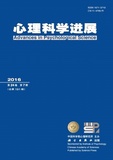A transactive memory system(TMS)is the cooperative division of labor that team members in interdependent relationships developed with respect to the encoding, storage, and retrieval of information from different substantive domains. The construct can explain how members of effective teams process information needed for solving problems, and how they apply what they know. TMS is especially relevant for understanding team knowledge processes. Research on TMS theory has a history of nearly 20 years. In this article, several important aspects of TMSs were reviewed, such as their formation and maintenance, measurement, impacting factors, and effects on team effectiveness. The authors finally pointed out their significance for management study and practice, and some suggestions for future research directions were provided




